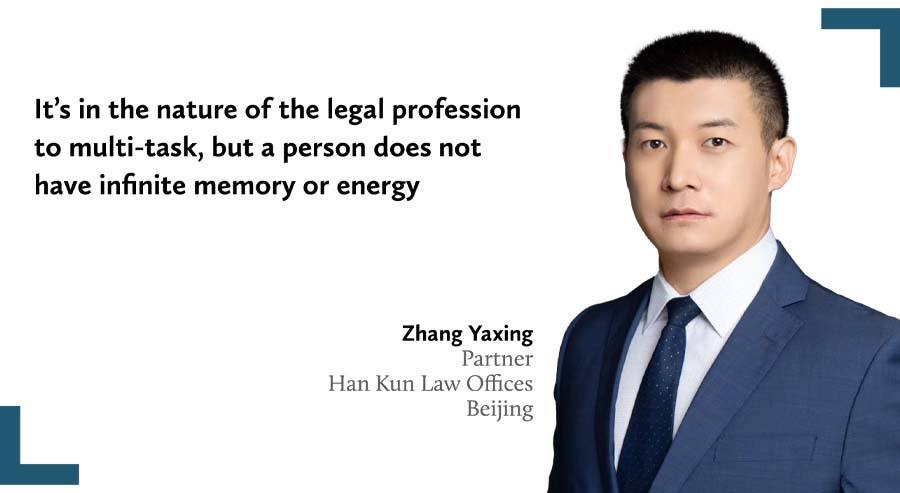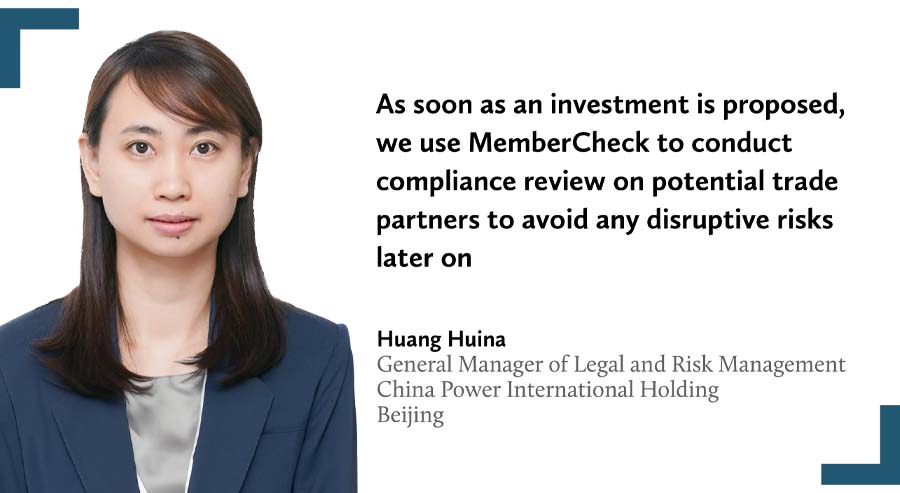What apps, software and websites are proving indispensable for China’s lawyers and in-house counsel? And how will legaltech reshape the landscape with AI now joining the race? Kevin Cheng reports
“If a craftsman is to create a beautiful object, he must first sharpen his tools,” said Confucius, according to The Analects. Some make the mistake of attributing authorship of these sayings and ideas to the revered philosopher himself, when in fact they were remembered by his disciples, who painstakingly compiled the teachings after his death.
Imagine how much more wisdom would have been passed down if they had Microsoft OneNote.
Today, roughly 2,500 years later, the dilemma faced by legal communities in respect of using legal tools and technologies, or legaltech, in their daily practice is not one of “if”, but “how extensively”.
What software, applications or websites are they using to keep up, or stand out? In which areas is legaltech most frequently utilised? And what are the biggest benefits – or, if any, downsides – to the unmistakable trend of tech-reliance?
China Business Law Journal recently posed these questions and more to hundreds of lawyers and in-house counsel, including many of our A-List, Rising Stars and In-house Counsel Award winners. The survey appears to have resonated with the community, as we received a flattering volume of responses, ranging from the positive to the cautious, to the utterly unexpected.
More than 81% of survey respondents picked “legal research” as an area where legaltech is regularly applied, highlighting the ubiquity of databases in a data-dominated era. Other top choices include: case management (75%); data analysis (62.5%); and contract & document management (61.8%). Please refer to the chart here for a complete picture of legaltech usage.
In terms of the importance of legaltech in daily work, survey respondents provided an average rating of 4.5/5, indicating near indispensability. The level of legaltech prevalence in the survey takers’ law firm or in-house legal team amounted to 4/5, indicating high coverage in most scenarios.
When it comes to prospects for the legaltech industry, the rating is 4.5/5, showcasing universal confidence in its future, highlighted especially by the recent explosion of artificial intelligence (AI) around the world.
As Coli Zhang, the Shanghai-based head of legaltech at Yingke Law Firm, says: “If I were to go back to a pre-legaltech world, it would be as if I were blinded, deafened and trapped in a bog.”
In the next few sections, we break down some highly recommended legal tools that came up in our survey. For a complete list of these legal tools and technologies, please refer to the table here.
An extension of mind
If most legal tools and technologies can be described as helping hands or welcome boosts for lawyers and in-house counsel, then legal databases are regarded by many as their bread and butter, which is unsurprising considering the overwhelming amount and complexity of laws, regulations, policies and legal precedents they deal with on a daily basis.
“As a legal practitioner, I always find a legal database indispensable in my practice, and I always use Wolters Kluwer for this purpose,” says Zhu Xiaoyang, a partner at the Shanghai head office of Llinks Law Offices.
Wolters Kluwer, or more specifically its Chinese localised branch, is one of the most popular choices for day-to-day legal research. Other top candidates include PKU Law, iCourt’s Alpha, and Faxin.
Bao Jingming, general manager at the legal and risk control department of General Technology Venture Capital, highlights PKU Law as an impressive efficiency booster, capable of providing not just an encyclopaedic collection of laws and regulations, but also accurate English translations, and comparisons with older versions.
In many cases, legal databases do not dwell alone in their own corner of cyberspace, but serve as one of the many functions, albeit often the core function, of ambitious one-stop service platforms that seek to digitise a lawyer’s entire work routine. There is, however, no shortage of market-tested tools dedicated to one or two specific steps in the legal practice.
Long Jintao, a Guangzhou-based senior partner at Yingke Law Firm in Guangzhou, recommends Fatianshi (legal angel) for its massive collection of contract templates and guidelines on key review points. “Fatianshi helped us significantly reduce both costs and repetitive labour, allowing paralegals to quickly gain a footing in the profession and make rapid improvements,” he says.
Daphne Dai, the Shanghai-based vice president and APAC general counsel at Garrett Advanced Motion, says her team introduced Coupa into their global supplier management system, which has since proved helpful. It streamlines processes by automatically generating a list of pending matters, the approval process of various contracts, integrating electronic signature modules, and arranging for automated signing and archiving of approvals when obtained.
“These functions undoubtedly facilitate our work, which is why we are recommending it to our clientele and our staff in charge of contract review and management,” says Dai.
For case management and billing-related issues, Ulrike Glueck, managing partner at the Shanghai office of CMS China, turns to Maconomy, an enterprise resource planning (ERP) software owned by Deltek that boasts project and finance integration.
In confrontational cases, timely and proper securing of evidence can make the ultimate difference. Rights protection apps Zhenxiang Quzheng (truth evidence collection) and Quanli Weishi (rights defender) stood out for enabling lawyers to take photos and video/audio recordings to use as evidence in court.
James Yuan, legal director at MSD in Shanghai, uses Relativity for e-discovery, a form of common law legal proceeding where information sought exists in an electronic format.
When engaging with international trade partners, Huang Huina, general manager of legal and risk management at China Power International Holding in Beijing, uses MemberCheck for sanctions screening. “As soon as an investment is proposed, we use MemberCheck to conduct compliance review on potential trade partners to avoid any disruptive risks later on,” she says.
Some services aim to benefit players in specific practice areas. Mozlen is the go-to app for many IP practitioners for trademark searches, comparisons and risk assessment. “Without adding onto our human labour, we were able to achieve clear and effective closed-loop management of our trademarks, from design, registration, licensing and maintenance to filing,” says Liu Li, Beijing-based director of the legal compliance and IP department of Thunder Software Technology.
Treasures in unlikely places
Not all technologies proving their worth to legal communities are labelled as legaltech, or were developed specifically with legal demands in mind. After all, lawyers and in-house counsel cannot thrive solely on legal expertise, but also require a keen understanding of the market and industries.
For capital market players, a reliable provider of securities updates – such as prospectuses and regulator enquiries and replies – makes for constant companionship. Li Xinwei, a partner at the Beijing office of Grandall Law Firm, relies on Jianwei Data and CNINFO for such information, and he is not the only one.
Sun Hualing, legal director at the Shenzhen-listed Feilo Acoustics, also recommends Jianwei for “easy searching of announcements and other information on domestic and overseas stock exchanges, which helps me keep up with industry updates and better serve the company’s businesses”.
Huang Hui, Guangzhou-based managing partner at maritime specialists Huang & Huang Co Law Firm, uses shipxy to monitor ship positions, historical tracks and marine meteorological conditions, and Equasis for ship information such as the owner, year of construction and management company.
With a regular need to review approval documents and certificates for financing projects, which are important sources of subsequent legal opinions that often come in PDF or image formats, Qi Zhanyong, a senior partner at the Beijing head office of DOCVIT Law Firm, finds a great helper in the Baimiao app. “The functions in this app that I use the most are text extraction, identification of formulae and forms, and PDF-Word conversion,” he says.
Likewise, Qiu Pingping, a Wuhan-based partner at East & Concord Partners, relies on the CamScanner app to instantly scan and share any new materials added in court.
In an era of information overload, apps and software that help ease the mental burden seem to have struck a chord with many lawyers and in-house counsel. Zhang Yaxing, a Beijing-based partner at Han Kun Law Offices, cites Dida as his tool to synchronise schedules and to-do lists across multiple platforms. “It’s in the nature of the legal profession to multi-task, but a person does not have infinite memory or energy,” he explains.
Ma Mingwei, a partner at the Shanghai head office of Zhenghan Law Firm, uses Mindjet, a mind mapping and innovation management software, to unravel layers of legal logic. Similarly, Wang Yuwei, a Shanghai-based partner at Guantao Law Firm, prefers Xmind for mind mapping and brainstorming.
You must be a
subscribersubscribersubscribersubscriber
to read this content, please
subscribesubscribesubscribesubscribe
today.
For group subscribers, please click here to access.
Interested in group subscription? Please contact us.























